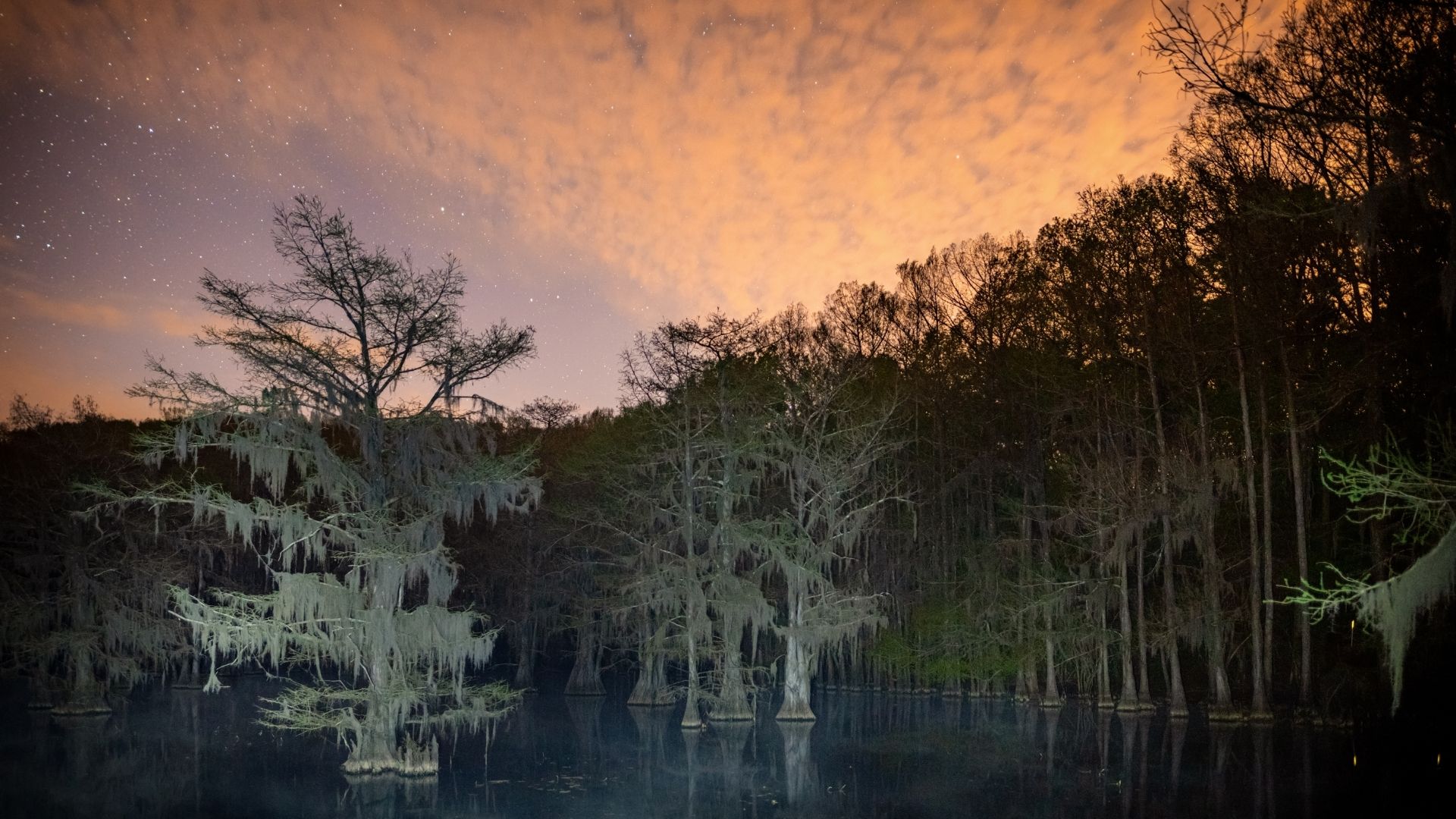Editor’s note: this piece first appeared on the RLC blog in Nov. 2020.
For many (most? all?) of us here in America, today is a lot of things. It’s odd, different, bizarre, quaint, lonely, dull, sad, triggering, exhausting, celebratory, energizing, or uncomfortable. This Thanksgiving holiday, regardless of how we have strived for normalcy or ignored the cautionary pleas of the CDC, there is no escaping reality: this is a complex day.
Hasn’t it always been?
I’m writing from a city called Shreveport, located in Northwest Louisiana, where a man named Captain Henry Shreve contributed to the Red River region’s settlement and in return received a legacy. But this little plot of land, where my son swings from oak branches beside the bayou . . . where we make mashed potatoes for three instead of twenty-three . . . where I call home . . . is much more than just a settler’s trophy. We live in Caddo territory, or so it was solely known before the Treaty of Cession of 1835. A whisper of the exiled blows through our walls and halls every time a resident references our “county” by name—Caddo Parish.
It is on this land of Caddo Parish where the Caddoan people were to be paid $80,000 for one-million acres of land. “Eventually these Louisiana Caddo left—their credit was cut off by local merchants, their payments ended, and the United States protection was failing—and headed for the Kiamichi River country in Oklahoma. The Caddoan presence in Louisiana, after a millennium, or more, was over.”
It is on this land of Caddo Parish where a makeshift capitol was established when Baton Rouge fell to Union forces during the Civil War.
It is on this land of Caddo Parish where, “in the decade following the Civil War, white men . . . were killing and terrorizing African-Americans in such high numbers that the parish earned the name, ‘Bloody Caddo.’”
It is Caddo Parish where nearly 13,000 people have contracted the novel Coronavirus this year, and many continue to shame the masked as “living in fear.”
And it is on this land that I have learned who God and my neighbor are. Where I have seen love, known mercy, connected deeply to image-bearers who have shown me the way of life, death, and life after death. My family is here, living off the fruit of stolen trees nurtured by enslaved hands.
It is home—haunted and heartwarming.
It’s both/and. So, too, is Thanksgiving.
READ: Join us in Prophecy Against the Pandemics
We are grateful for life and any chance to press into joy, especially in 2020. And we are aware that this holiday is built upon a false narrative that spun exploitation into mutual affection. We are missing the warmth and awkwardness of ritualistic connection. And we know that we are citizens of an empire forged by oppression and sustained by racism and inequality. We are nurturing our paths. And we are deconstructing our paths because of how the gain of some came at the expense of many.
There is tension in our country, there is tension in our churches, there is tension in our very selves today and beyond, because these times—like our stories—are complicated.
And we don’t love complicated. We’d rather certainty, which is why dualism is fed so plentifully from our political podiums and pulpits. But for today, I wonder if we might not reject the tension and instead lean curiously into Mystery. I wonder if we might make an honest home in the uncomfortable both.
I wonder if we might pray prayers that acknowledge pain and hope for goodness at the very same time.
Maybe, we can even start here.
A Prayer for Today (and all the days after)
Spirit who hovered over the waters of our earth and our bodies throughout the generations, we give you thanks for connecting us to who we were, are, and will be.
We pause to look out over this plot of land: _____ territory.
As we remember our Native siblings—who first invited the foreigner seeking freedom from oppressive rule, who shared space and sustenance with the homeless and welcome with the sojourner—stir in us the hospitality toward those migrating and seeking refuge today.
As we remember our Native siblings—who did not possess immunity, and who were vulnerable to the diseases of colonizers—impress further upon us the responsibility of protecting those most vulnerable in our current pandemic and racial climate.
As we remember our Native siblings—who were forced to leave unceded land, who were stripped of space and identity, who were taken from home and killed—illuminate the injustices still terrorizing Native communities today. Let us hear your call to act on behalf of sacred lands and water, on behalf of Missing and Murdered Indigenous Women.
As we remember our Native siblings of centuries past, convict us of the narratives we craft and sustain that suggest a people solely confined to history. Let us believe and affirm: you’re still here, I’m still here. Let us lend ourselves to listening, supporting, honoring, and leveraging in months beyond November.
Let us bend low to the ground now, touching the blades or soil, let us remember our baptisms in puddled water or bubbled stream, calling to mind our place in the long story of death and life.
May we feel grateful to recognize the evil and liberation within it and within us, the provision and the need, the celebration and lament and everything in between—all present today.
We give thanks for these: ______
While grieving these:______
And we ask that all which adds to the fulness of our lives is ever used to add to the fulness of others.
Till all are home again,
Amen.

